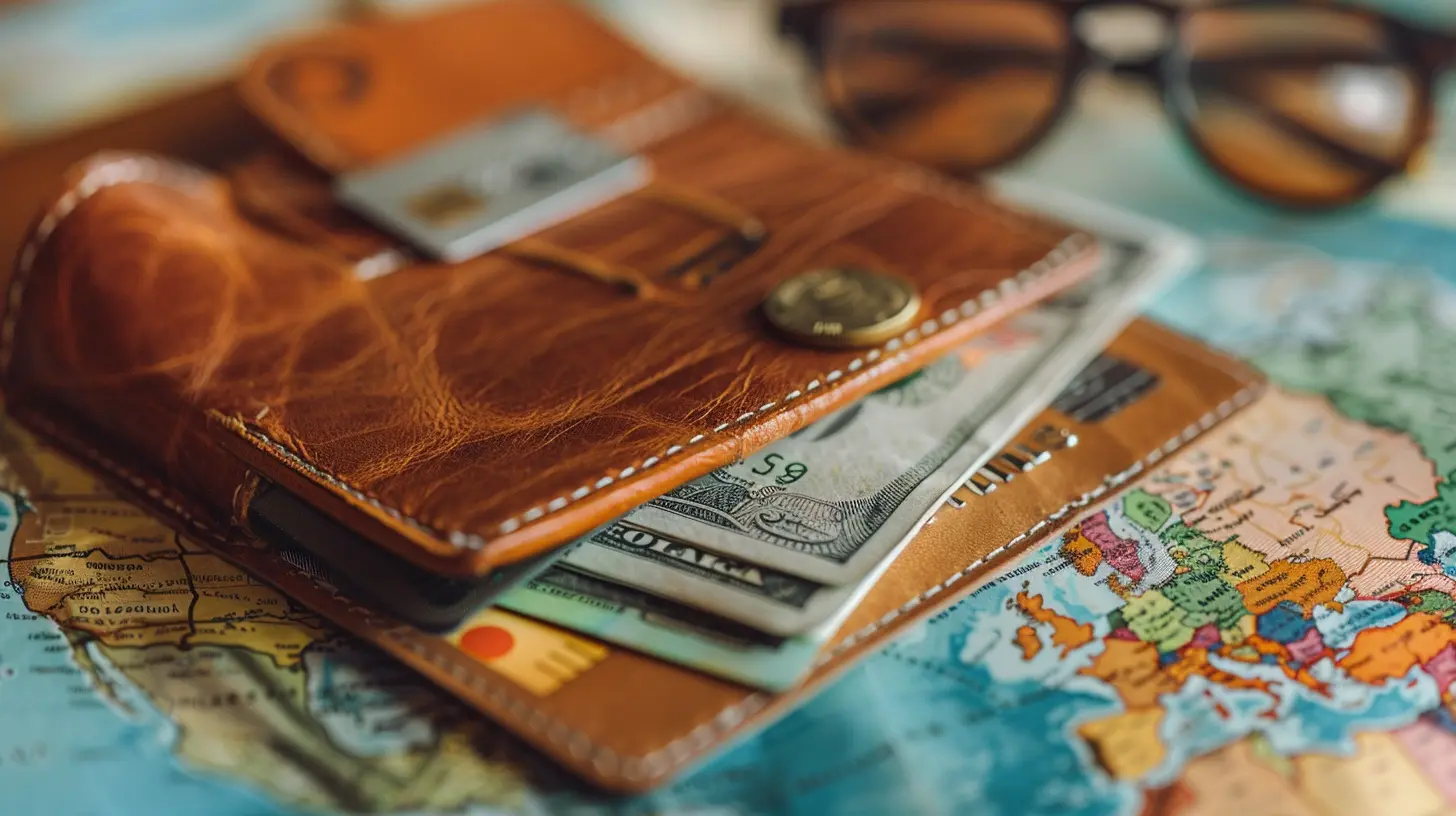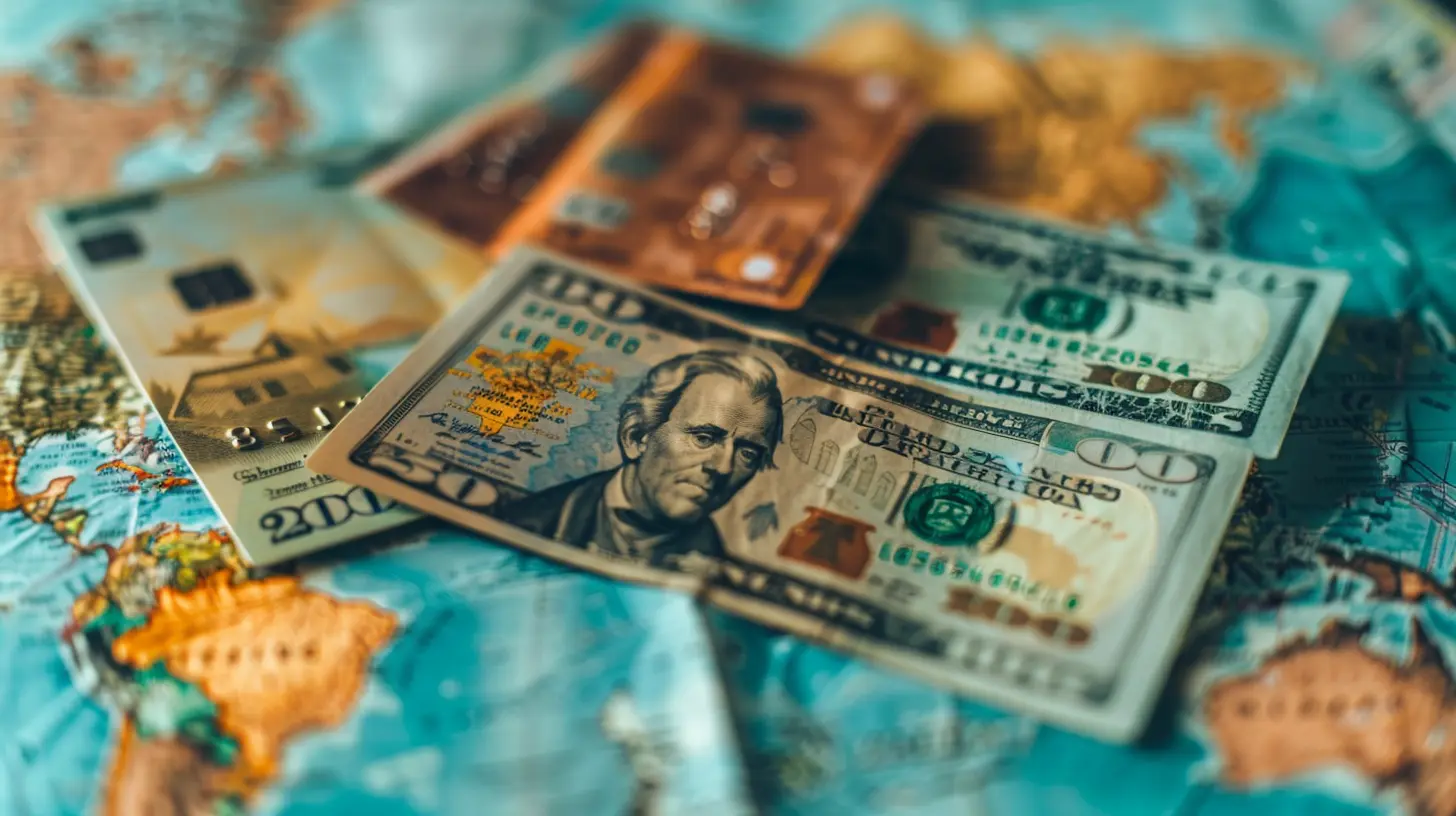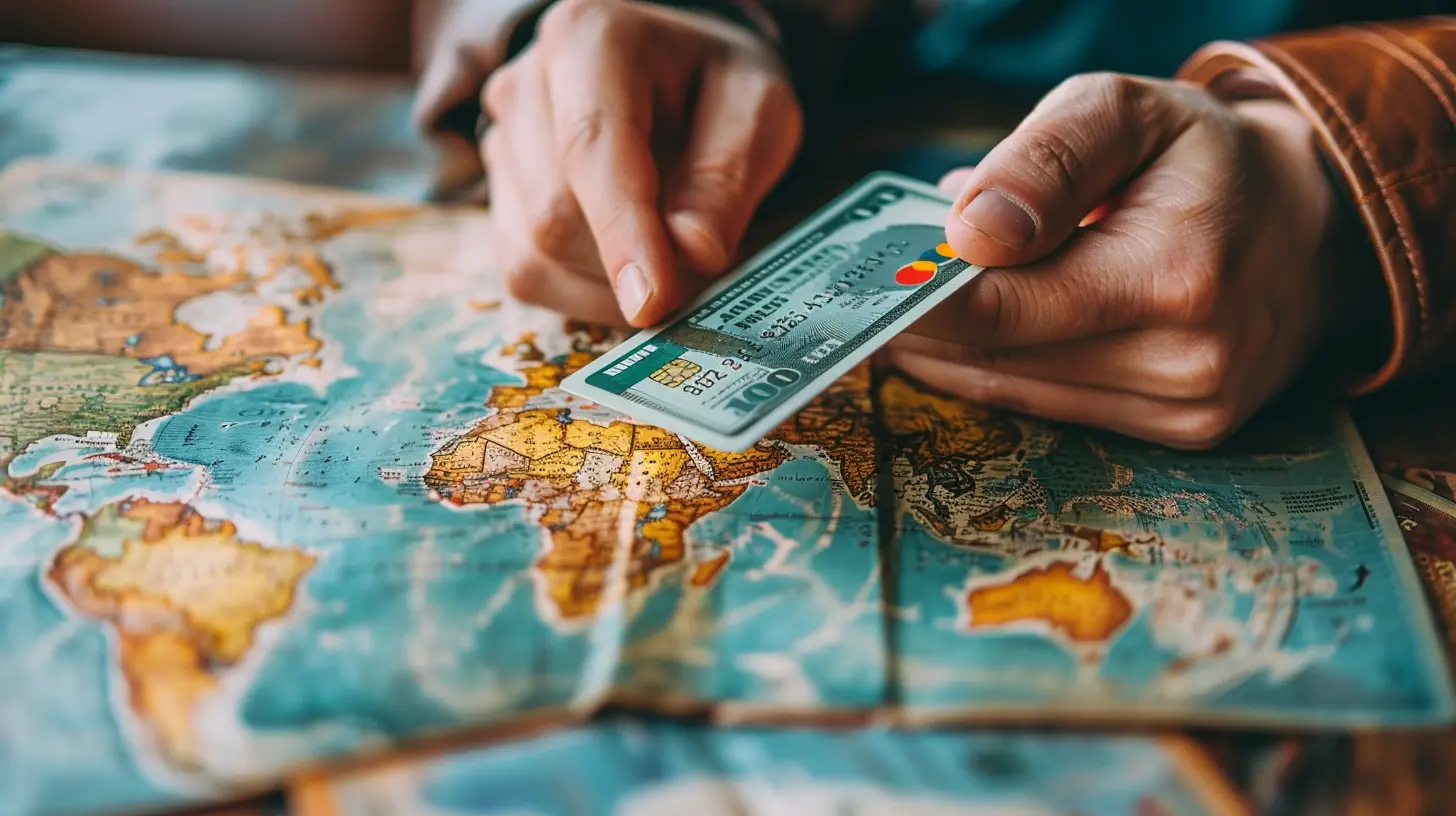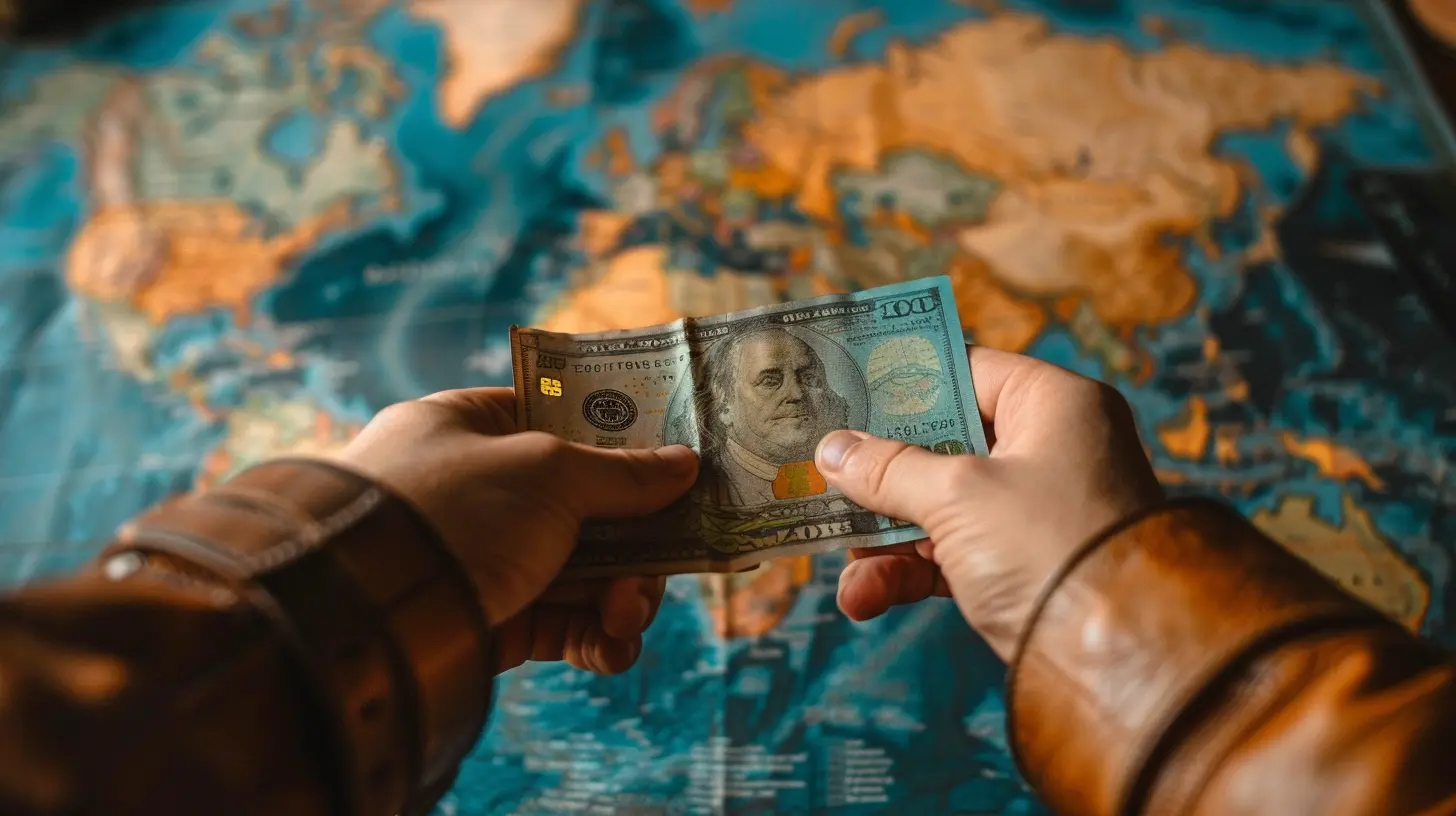Safety Precautions When Using Cash and Credit Cards Abroad
9 October 2025
So, you’re about to embark on an epic adventure abroad. Maybe it’s a dream vacation, a business trip, or a spontaneous escape from reality (we won’t judge). But before you dive headfirst into that adventure, let’s talk about one of the least glamorous yet absolutely crucial aspects of travel—money.
Between pickpockets, shady ATMs, currency exchange rip-offs, and outright fraud, handling cash and credit cards overseas can turn into a financial horror story if you’re not careful. Don’t worry, though. I got you! Here’s everything you need to know about staying financially safe while globetrotting like a boss. 
💰 The Great Debate: Cash vs. Credit Cards
There’s always that one traveler who insists cash is king, while another swears by credit cards. The truth? It depends on where you’re going and how you manage your money. Let’s break it down:Why Cash is Still a Travel Essential
- Some places (especially rural areas or small businesses) don’t accept cards.- Tipping and small purchases are easier with cash.
- Avoids potential card decline issues due to foreign transactions.
- No worries about card skimming at shady ATMs.
Why Credit Cards Are Your Best Travel Buddy
- More secure than carrying wads of cash.- Many cards offer travel perks like fraud protection, rewards, and insurance.
- Exchange rates from banks are often better than cash exchange booths.
- Helps track expenses easily.
The Smart Move? A Mix of Both
Ideally, travel with a combination of both cash and credit cards. Rely on your card for most purchases but keep some cash for emergencies, small expenses, and places that don’t accept plastic.
🔒 Essential Safety Tips for Handling Cash
Cash is convenient, but it’s also a prime target for thieves. Let’s be real—if someone swipes your cash, it’s gone forever. So, let’s make sure that doesn’t happen.1. Don’t Carry Too Much at Once
Walking around with a thick wallet stuffed with bills? That’s just screaming, "Rob me, please!" Carry only what you need for the day and leave the rest in a secure place.2. Use a Money Belt or Hidden Pouch
Forget keeping all your cash in your wallet or back pocket. Invest in a money belt or a hidden travel pouch. Thieves can’t steal what they can’t see!3. Split Your Cash
Never put all your eggs (or bills) in one basket. Keep a portion in your wallet, some in a secret stash in your bag, and a little in your hotel safe. If you do get pickpocketed, at least you won’t lose everything.4. Be Wise About Currency Exchange
- Avoid airport exchange counters—they charge terrible rates.- Use ATMs affiliated with major banks instead.
- If you must exchange cash, do it at a reputable bank or exchange office.
5. Watch Out for Fake Bills
Yep, counterfeit money is a thing, and unsuspecting tourists are prime targets. Educate yourself on how the local currency looks and feels. If a bill seems off, question it.
💳 Staying Safe With Credit Cards Abroad
Your credit card is like a VIP pass for convenience, but it can also be a hacker’s dream if you’re not careful. To keep your finances secure, follow these golden rules.1. Inform Your Bank Before You Travel
Nothing kills the vacation vibe faster than a frozen card. Many banks flag foreign transactions as fraud unless you notify them in advance. Save yourself the headache and give them a heads-up.2. Carry More Than One Card
What if your only card gets lost, stolen, or worse, eaten by an ATM? Always have a backup card, stored separately, in case of emergencies.3. Use Credit Cards Over Debit Cards
Credit cards offer better fraud protection. If someone steals your debit card info, they can drain your bank account. With credit cards, you can dispute fraudulent charges easily.4. Stick to Secure ATMs
Avoid random ATMs in poorly lit alleys or sketchy convenience stores. Use ATMs inside banks, hotels, or malls to minimize the risk of skimming devices.5. Watch for Skimmers and Card Fraud
Skimmers are sneaky devices designed to steal your card info. Before using an ATM or card reader:- Check if the card slot looks slightly off or wobbly.
- Cover your PIN while entering it.
- Avoid using ATMs that seem tampered with.
6. Keep an Eye on Your Card
Handing your card to a waiter or cashier? Watch them like a hawk! Some scammers use hidden skimmers to copy your card details while processing your payment.7. Opt for Contactless Payments
Many credit cards offer tap-to-pay options, which reduce the risk of card skimming. If your card supports it, use it!8. Use Virtual Credit Cards and Mobile Wallets
Services like Apple Pay, Google Wallet, and Samsung Pay encrypt your details, making transactions safer than using a physical card.
🏨 Hotel and Accommodation Safety Tips
Hotels are generally safe, but carelessness can still make you a target.1. Use the Hotel Safe
Got extra cash, a backup card, or important documents? Use the in-room safe instead of leaving them lying around.2. Avoid Leaving Wallets and Cards Unattended
Housekeeping staff shouldn’t be snooping, but leaving tempting valuables out in the open is just bad judgment.3. Be Cautious With Public WiFi
Public WiFi hotspots are hacker hotspots. Avoid checking your bank accounts or entering card details when connected to free WiFi. If needed, use a VPN to add a security layer.🛒 Shopping and Dining Tips
1. Decline Dynamic Currency Conversion (DCC)
Ever been asked, “Would you like to pay in your home currency?” Sounds convenient, right? WRONG. This is a sneaky scam where merchants charge you inflated exchange rates. Always choose to pay in the local currency.2. Ask for Secure Payment Options
If a business requires you to hand over your card for processing (especially in smaller shops), be cautious. Whenever possible, use tap-to-pay or insert the card yourself.3. Get Digital Receipts When Possible
Paper receipts can get lost or even stolen. Digital records make it easier to track expenses and dispute fraudulent charges.🏡 Returning Home: A Few Final Steps
1. Check Your Bank Statements
Even if you were careful, fraud sometimes slips through. Review your transactions ASAP to catch any unauthorized charges.2. Change Your PINs
It’s better to be safe than sorry. Change your card PINs upon returning home to prevent potential unauthorized access.3. Notify Your Bank if You Notice Anything Suspicious
See a weird charge that you don’t recognize? Contact your bank immediately to dispute it before it turns into a bigger hassle.⚠️ Final Word: Stay Smart, Stay Safe
Money troubles can turn a dream vacation into a nightmare real quick. But with a few simple precautions, you can avoid the most common pitfalls. Stay alert, be smart, and handle your cash and credit cards like a pro. Because let’s be honest—no one wants to spend their vacation on the phone with their bank, trying to explain why their credit card is maxed out in a country they’ve never even visited.Travel smart, and may your adventures be filled with incredible memories—not financial regrets!
all images in this post were generated using AI tools
Category:
Travel SafetyAuthor:

Reed McFadden
Discussion
rate this article
1 comments
Victor Warner
Traveling with cash and credit cards? Think of it like dating—always keep your valuables close, never share your PIN with strangers, and if it feels wrong, run! Stay savvy, and may your adventures be filled with more memories than mishaps!
October 12, 2025 at 4:01 PM

Reed McFadden
Great analogy! Staying cautious with your money abroad is crucial. Thanks for the reminder to prioritize safety while making unforgettable memories!


